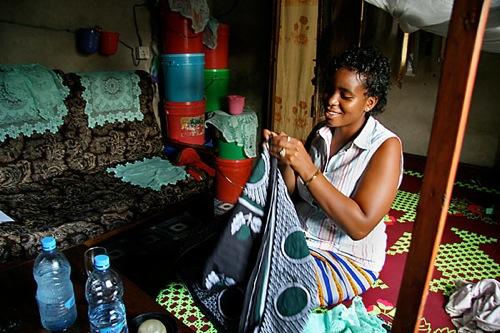
Reproduced with permission from The Christian Science Monitor.
Refugees now arriving in the US are the most diverse group in history. A 30-year-old, one-size-fits-all entry program doesn't keep up with their divergent needs.
Visits to two newly arrived families here show the challenge.
Until his collaboration with US forces endangered his life, Saadi al Sawadi was an accountant at Baghdad International Airport. He and his wife, Sihan, a teacher, gave their three sons a comfortable life of books, movies, and camera phones. As refugees in Jordan, they found excellent special needs services for the eldest, Hazim.
Until the Burmese military junta forced them off their land, Htay Reh and his wife, Noe Meh, were rural rice farmers, living in bamboo huts. Each has an eighth-grade education. In a Thai refugee camp since 1996, the torture survivors worked as a social worker and a midwife, respectively, and raised two polite young daughters.
Frustrating, is how American life has been for the Iraqis since they arrived in March. Mr. Sawadi is taking classes to perfect his English. He's willing to work menial jobs, but interviews – most recently at a window plant – have yielded no offers. His greatest problem is adequate medical care and enrichment for Hazim.
Terrifying, is how America struck the Burmese, four days after their arrival last month. The traffic is incredible. Their African neighbors are a color of human being they've never seen. Their fridge and stove are their first electronics. Camped on their living room rug, all four peered out the window at a baffling new world.
The two families share the dream of a good education for their kids, and the fear that, despite their willingness to work, they won't be able to provide it.



